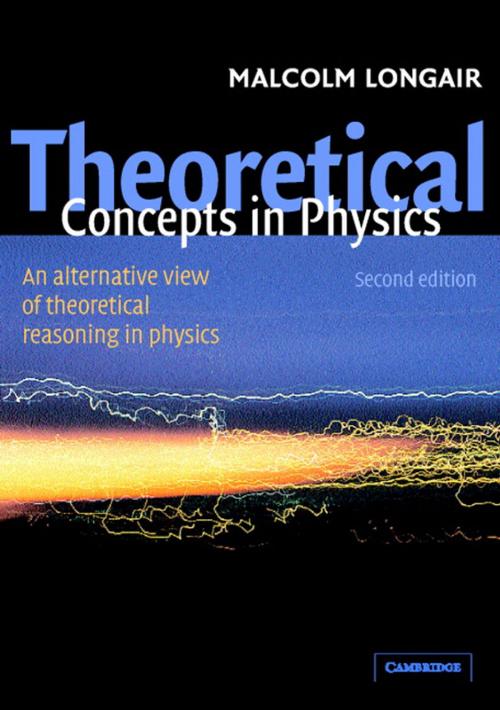Theoretical Concepts in Physics
An Alternative View of Theoretical Reasoning in Physics
Nonfiction, Science & Nature, Science, Physics, Mathematical Physics, General Physics| Author: | Malcolm S. Longair | ISBN: | 9781107713666 |
| Publisher: | Cambridge University Press | Publication: | December 4, 2003 |
| Imprint: | Cambridge University Press | Language: | English |
| Author: | Malcolm S. Longair |
| ISBN: | 9781107713666 |
| Publisher: | Cambridge University Press |
| Publication: | December 4, 2003 |
| Imprint: | Cambridge University Press |
| Language: | English |
A highly original, and truly novel, approach to theoretical reasoning in physics. This book illuminates the subject from the perspective of real physics as practised by research scientists. It is intended to be a supplement to the final years of an undergraduate course in physics and assumes that the reader has some grasp of university physics. By means of a series of seven case studies, the author conveys the excitement of research and discovery, highlighting the intellectual struggles to attain understanding of some of the most difficult concepts in physics. Case studies include the origins of Newton's law of gravitation, Maxwell's equations, mechanics and dynamics, linear and non-linear, thermodynamics and statistical physics, the origins of the concepts of quanta, special relativity, general relativity and cosmology. The approach is the same as that in the highly acclaimed first edition, but the text has been completely revised and many new topics introduced.
A highly original, and truly novel, approach to theoretical reasoning in physics. This book illuminates the subject from the perspective of real physics as practised by research scientists. It is intended to be a supplement to the final years of an undergraduate course in physics and assumes that the reader has some grasp of university physics. By means of a series of seven case studies, the author conveys the excitement of research and discovery, highlighting the intellectual struggles to attain understanding of some of the most difficult concepts in physics. Case studies include the origins of Newton's law of gravitation, Maxwell's equations, mechanics and dynamics, linear and non-linear, thermodynamics and statistical physics, the origins of the concepts of quanta, special relativity, general relativity and cosmology. The approach is the same as that in the highly acclaimed first edition, but the text has been completely revised and many new topics introduced.















